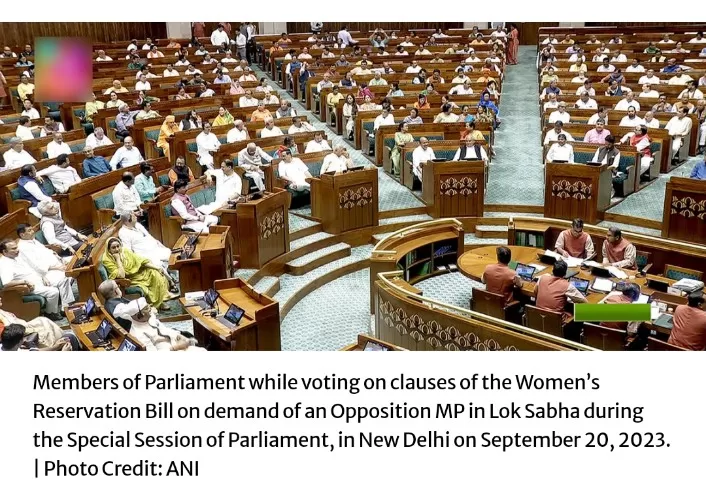New Delhi: In a noteworthy divergence from the prevailing support for the Nari Shakti Vandan Adhiniyam, or the Women’s Reservation Bill, the Rashtriya Janata Dal (RJD) found itself standing alone in the Rajya Sabha as it staunchly demanded the referral of the bill to a select committee. RJD’s Rajya Sabha member, Manoj K. Jha, the sole advocate for this position, asserted that Parliament would be making a “historic blunder” if it failed to amend the bill to incorporate reservations for Other Backward Classes (OBCs).
While all the INDIA coalition partners resoundingly backed the concept of a “quota within quota” – meaning reservations for OBCs within the proposed 33% reservation for women with immediate implementation – they all united in support of the bill itself. Remarkably, RJD was the sole political entity that declined to articulate a clear stance either in favor or against the bill.
“I implore all my colleagues here to set aside party whips for a moment. The issue at hand transcends the simple binary of ‘support’ or ‘oppose’ for the bill. We still possess an opportunity to refer the bill to a select committee for the inclusion of OBC quotas. Should we fail to seize this chance, it would indeed constitute a momentous misjudgment,” Mr. Jha passionately stated.
He further emphasized that the time has come to move beyond superficial rhetoric regarding OBCs, arguing that a “quota within quota” is imperative to bring affirmative action to every stratum of society. Mr. Jha’s remarks were directed towards both the government and RJD’s allies within the INDIA bloc.
Since the bill’s passage in the Lok Sabha on Wednesday, Mr. Jha has consistently underscored that the dominant narrative has shifted from celebrating legislation that could potentially enhance women’s representation to one that portrays the government as being unsupportive of OBC interests.
Under the 2008 delimitation, the Lok Sabha currently comprises 412 general seats, 84 seats reserved for Scheduled Castes, and 47 for Scheduled Tribes. Applying the proposed 33% reservation for women to the current Lok Sabha would result in 136 seats allocated to women. Mr. Jha contends that the reservation for SC and ST women should not be drawn from the existing quota, as stipulated by the current bill, but should instead come from the 33% reserved specifically for them. Additionally, he called for a distinct OBC quota within the 33% of seats designated for women and even proposed amendments to this effect.




